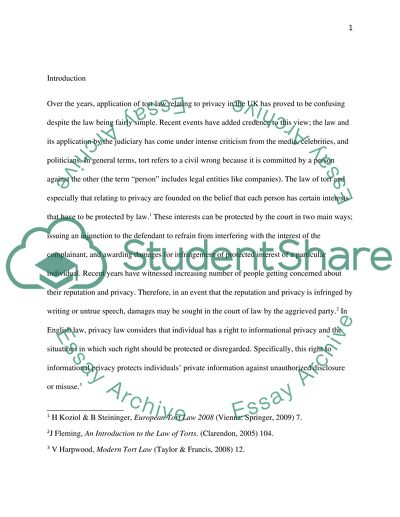Cite this document
(“Where There Is an Invasion of Privacy by the Media, an Action in Tort Essay”, n.d.)
Where There Is an Invasion of Privacy by the Media, an Action in Tort Essay. Retrieved from https://studentshare.org/law/1447010-where-there-is-an-invasion-of-privacy-by-the-media
Where There Is an Invasion of Privacy by the Media, an Action in Tort Essay. Retrieved from https://studentshare.org/law/1447010-where-there-is-an-invasion-of-privacy-by-the-media
(Where There Is an Invasion of Privacy by the Media, an Action in Tort Essay)
Where There Is an Invasion of Privacy by the Media, an Action in Tort Essay. https://studentshare.org/law/1447010-where-there-is-an-invasion-of-privacy-by-the-media.
Where There Is an Invasion of Privacy by the Media, an Action in Tort Essay. https://studentshare.org/law/1447010-where-there-is-an-invasion-of-privacy-by-the-media.
“Where There Is an Invasion of Privacy by the Media, an Action in Tort Essay”, n.d. https://studentshare.org/law/1447010-where-there-is-an-invasion-of-privacy-by-the-media.


